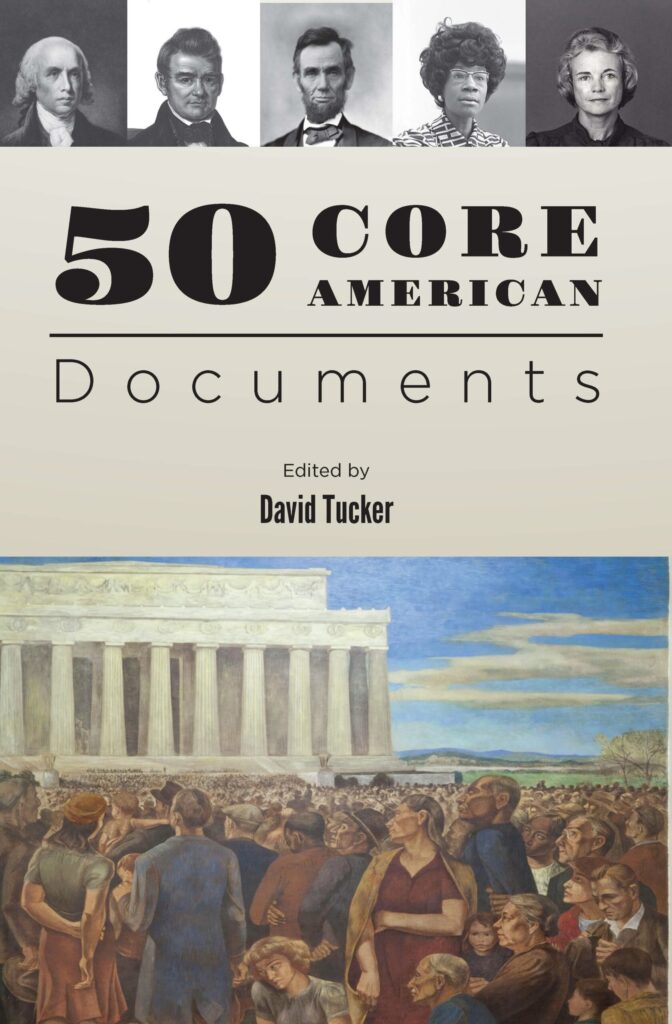50 Core American Documents
Selected and introduced by David Tucker

This collection is an introduction to both American history and to the Core Documents project of Teaching American History. As an introduction to American history, it focuses on several key themes and ideas that have shaped our history, including equality and liberty, race and civil rights, religion and politics, America’s uniqueness and place in the world, the relationship between the states and the federal government, and the federal government and the daily lives of Americans. It presents these themes and ideas as Americans thought about them when the United States was an agrarian republic, as it developed into an industrialized nation-state, and as it most recently struggled with the consequences of its success in creating a globalized economy and liberal international order that, to a remarkable degree, reflects the guiding principles of its own continental expansion. Those guiding principles were, in turn, formed from the central principle of all American history and politics, human equality, as expressed in the Declaration of Independence.
Documents Include:
- Benjamin Franklin, Autobiography, 1771–1790
- Brutus I, October 18, 1787
- Secretary of State John Quincy Adams, An Address . . . Celebrating the Declaration of Independence, July 4, 1821
- John Ross, Address to the People of the United States, by the General Council of the Cherokee Nation, July 1830
- The Farmers’ Movement, 1873–1874
- Eugene V. Debs, Liberty: Speech at Battery D, Chicago, on Release from Woodstock Jail, November 22, 1895
- W. T. B. Williams, “The Negro Exodus from the South,” 1919
- President Harry Truman, Veto of the Internal Security Act, September 22, 1950
- Representative Shirley Chisholm, “For the Equal Rights Amendment,” May 21, 1969, and August 10, 1970
- Justice Sandra Day O’Connor and Justice Clarence Thomas, Grutter v. Bollinger, June 23, 2003
- President Barack Obama, Remarks on the Economy, Osawatomie, Kansas, December 6, 2011

